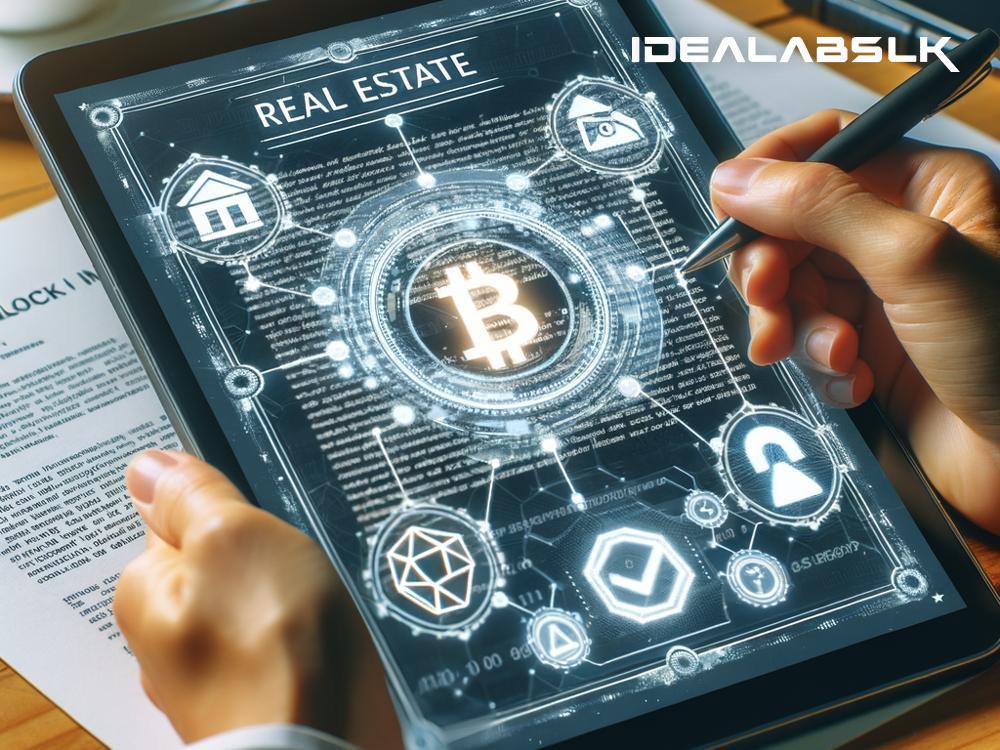Revolutionizing Real Estate: The Power of Blockchain in Legal Document Management
The real estate sector is witnessing a seismic shift, thanks to the groundbreaking fusion of technology and property transactions. Among these innovations, blockchain stands out as a game-changer, especially in the realm of legal document management. At first glance, blockchain might seem like a buzzword reserved for tech enthusiasts and cryptocurrency traders. However, its implications for the real estate industry are profound and far-reaching, promising to simplify, secure, and streamline the way we handle property-related legal documents.
Understanding Blockchain Basics
Before we dive into its impact on real estate, let's unravel the mystery of blockchain. Imagine it as a digital ledger, not unlike a traditional notebook, but with superpowers. Each "page" or block in the ledger keeps a record of transactions, and once filled, it's sealed and linked to the previous block, creating a chain. What makes it revolutionary is its decentralized nature – it isn't stored in one place but is distributed across a network of computers, making it highly resistant to tampering and fraud.
The Real Estate Revolution: Blockchain in Legal Document Management
Real estate transactions are notorious for their complexity, involving numerous steps, piles of paperwork, and various stakeholders. Each property has its unique history, encompassing deeds, mortgages, lease agreements, and more. Managing these documents traditionally involves a significant amount of time, money, and vulnerability to human error, not to mention the risk of document forgery and fraud. Here's where blockchain comes in, offering a more robust, efficient, and secure method.
Simplifying Transactions
Blockchain simplifies the cumbersome process of real estate transactions by enabling the digital representation of assets. Properties can be tokenized, with each token representing ownership or a share of the property, and these tokens can be bought, sold, and traded much like stocks. This tokenization not only makes transactions quicker and more cost-effective but also opens up the market to a broader range of investors.
Enhancing Security and Trust
The transparent yet secure nature of blockchain provides an unprecedented level of trust in real estate transactions. Every transaction on the blockchain is encrypted and permanently recorded, making it almost impossible to alter or forge documents. This transparent tracking of a property's history, from construction to current ownership, alleviates concerns about fraudulent deeds or encumbrances, offering peace of mind to buyers, sellers, and lenders alike.
Streamlining Record Keeping
Blockchain can store and validate property records in real-time, ensuring that they are always up-to-date and easily accessible. This eradication of paper trails not only slashes administrative costs and reduces the risk of lost or damaged documents but also dramatically speeds up the transaction process. Buyers can verify legal titles instantly, lenders can process mortgages faster, and sellers can transfer property rights without the typical bureaucratic delays.
Challenges and Considerations
Despite its potential, the adoption of blockchain in real estate is not without its challenges. Regulatory hurdles, privacy concerns, and the need for industry-wide standardization are significant barriers. Moreover, the technology’s novelty means that many in the sector are still unfamiliar with it, necessitating considerable education and infrastructure development.
The Road Ahead
The future of real estate, powered by blockchain, promises a landscape where transactions are quicker, more secure, and less costly. As the industry begins to embrace this technology, we could see a shift towards more transparent, equitable, and efficient property markets. However, realizing this vision will require collaboration between technologists, real estate professionals, regulators, and governments to address the challenges and harness the full potential of blockchain.
As we stand on the cusp of this transformation, it's clear that blockchain in real estate legal document management is not just a fleeting trend but a revolutionary shift. By demystifying the complexities of property transactions and offering a more trustworthy and streamlined approach, blockchain is set to redefine the very foundations of real estate transactions. For professionals and investors alike, understanding and adapting to this technology is not just beneficial; it's imperative for staying competitive in the rapidly evolving real estate landscape.
In conclusion, the marriage of blockchain technology with real estate legal document management heralds a new era of efficiency, security, and transparency. As we navigate through the intricacies of property transactions, embracing blockchain might just be the key to unlocking a future where real estate dealings are no longer a tedious chore but a swift, seamless, and secure experience.

